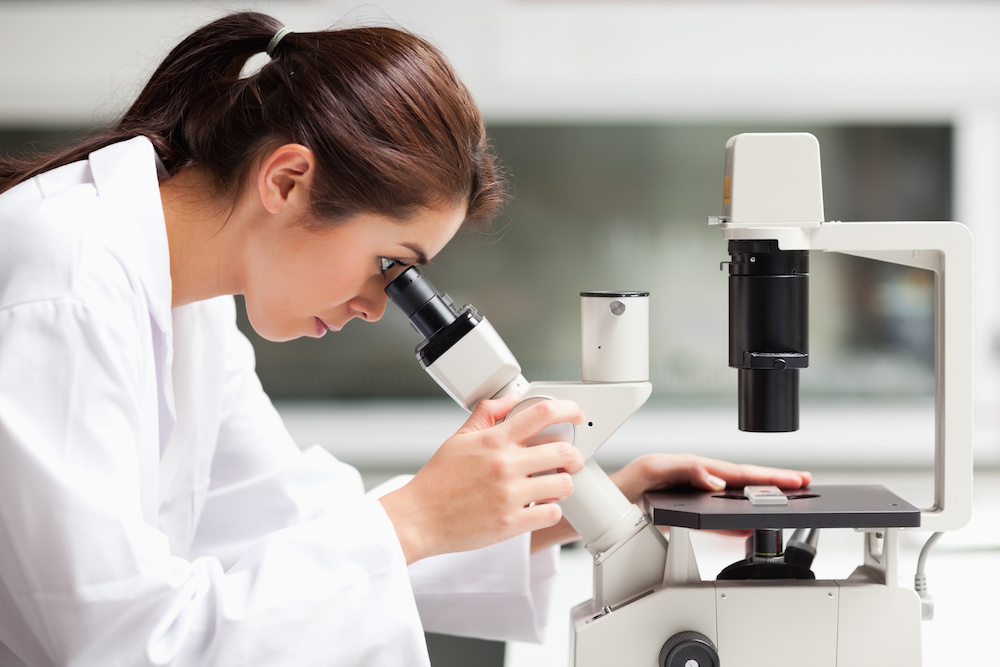Which Tests Are Used to Diagnose and Stage Non-Hodgkin Lymphoma?
7 min read

Non-Hodgkin lymphoma is a type of blood cancer that develops in the lymphatic system, part of your immune system. The lymphocyte cells, a type of white blood cell, start to change due to a DNA mutation. Of the more than 70 subtypes of non-Hodgkin lymphoma, diffuse large B-cell lymphoma and follicular lymphoma occur most frequently. Learn more about the various types of non-Hodgkin lymphoma.
The reason behind the change in the lymphocyte’s DNA is not yet known. However, you can look for symptoms and talk to your doctor about them for further testing.
Read more in our blog: Pay Attention to Your Lymph Nodes for Cancer Signs
What are the Symptoms of Non-Hodgkin Lymphoma?
The best way to get diagnosed as early as possible is to be open with your doctor about anything out of the ordinary. Schedule an appointment with your primary care doctor to have them evaluate any of the following:
- Swollen lymph nodes in the neck, armpits, or groin that are not related to a viral infection such as a cold or the flu and don’t go down on their own after a week or two.
- Stomach pain or swelling of the abdomen.
- Chest pain, coughing, or trouble breathing that is not related to a viral infection such as coronavirus or the flu.
- Fatigue that doesn’t go away with rest
- Fever for no known reason.
- Night sweats that are not specifically related to menopause
- Unintended weight loss
These can be signs of many different conditions, but it’s important to figure out which one. Even if it’s not lymphoma, there can be a treatment plan for you to overcome these problems.
Most likely your doctor will take some blood tests. If there are signs in the results that it could be lymphoma, your next step will be to schedule a consultation with a hematologist/oncologist.
If Your Doctor Suspects a Blood Condition, a Hematologist/Oncologist Will Confirm a Diagnosis
The specialist in blood disorders and cancer, including lymphoma, will not only ask you about your symptoms, but they will also review your blood tests and go over your personal history, including:
- Age – most non-Hodgkin lymphoma develops in people over age 60, although some subtypes are more common in young people
- Race – White people are more likely to develop non-Hodgkin lymphoma compared to Blacks or Asians
- Family history of having non-Hodgkin lymphoma or other cancers
- Exposure to specific chemicals or drugs, especially benzene, herbicides, and insecticides, and some chemotherapy drugs are taken for other cancers
- Exposure to radiation from atomic bombs, nuclear reactor accidents, or radiation therapy used to treat other cancers
- Weakened immune system due to an organ transplant, contracting HIV-AIDS infection, or having inherited genetic conditions
- Autoimmune diseases (rheumatoid arthritis, lupus, Sjogren disease, or celiac disease)
- Infections such as Epstein-Barr virus, T-cell lymphotropic virus, or herpesvirus 8, or having an infection that causes your immune system to be constantly active (H-pylori or long-term hepatitis C)
- Obesity
- Breast implants
Biopsy: The Next Step if Lymphoma is Suspected
A biopsy is the only way to accurately confirm whether lymphoma is present, and what type it is. A biopsy is typically the removal of a lymph node or some of the lymph node for testing, especially if there is one that shows signs of infection.
Types of biopsies used to diagnose non-Hodgkin lymphoma include:
- An excisional or incisional biopsy requires an incision through the skin to remove the whole lymph node (excisional biopsy) or a small part of a tumor or lymph node (incisional biopsy). This is the most common type of biopsy. Lymph nodes that are just under the skin are easily removed with local anesthesia. If the affected node is deep inside the body, you’ll be fully sedated.
- Needle biopsies are less invasive but may not extract enough tissue to diagnose non-Hodgkin lymphoma or determine its type, so you may need a follow-up excisional biopsy. A fine needle aspiration biopsy uses a very thin, hollow needle attached to a syringe to withdraw a small amount of tissue from a node or tumor. A core needle biopsy uses a larger needle that can remove a larger tissue sample.
- Bone marrow biopsy and aspiration use a needle inserted into the hipbone to remove a bone marrow tissue sample. This type of biopsy is used to determine if non-Hodgkin lymphoma has spread to bone marrow.
Analysis of Biopsy Samples Provides the Hematologist with Answers
Everything removed during a biopsy is analyzed in a laboratory. The size, shape, and arrangement of the cells viewed under a microscope can show if non-Hodgkin lymphoma is present and what its type is. In addition to biopsy samples, other lab tests can provide more diagnostic information and help plan treatment. These tests can determine the type of lymphoma by looking for specific proteins in or on cancer cells.
- Flow cytometry and immunohistochemistry analyze biopsy samples that have been treated with antibodies that will stick to specific proteins in cancer cells. Immunohistochemistry uses a microscope to determine if the antibodies are attached to the cells. Antibody attachment can also be determined using a flow cytometry machine.
- The analysis of lymphocyte subsets is usually done to diagnose non-Hodgkin lymphoma because most non-Hodgkin lymphoma grows from B cells. B and T lymphocytes are types of immune system cells that are produced in the bone marrow and found in blood and lymph tissue. The types of non-Hodgkin lymphoma that have B cells include diffuse large B-cell lymphoma, follicular lymphoma, mantle cell lymphoma, and Burkitt lymphoma. T-cells are a lymphocyte that helps kill foreign matter that’s invaded the body.
After a Non-Hodgkin Lymphoma Diagnosis: What Happens Next?
The good news is that non-Hodgkin lymphoma, especially when found early, has a high rate of treatment success. The type of lymphoma will impact the overall likelihood of a five year survival rate with follicular lymphoma at a 97% relative survival rate when it’s found early, according to the American Cancer Society. Diffuse large B-cell lymphoma has a 73% relative survival rate when found early, and it remains localized.
To fully understand if the cancer is localized or has spread to other areas of the body, additional tests will be needed.
Learn more about what to do after a lymphoma diagnosis.
Tests Used for Non-Hodgkin Lymphoma Staging
There are several types of tests that may be used, although you might not need all of them, to determine the extent of lymphoma. The results of these tests will directly impact the stage and the types of treatments that are needed.
- X-rays of the chest identify swollen lymph nodes in the chest area.
- A spinal tap (lumbar puncture) may be done to check if the cancer has invaded the fluid that surrounds your spinal cord and brain or if your doctor thinks it may have spread to the brain. A small needle is used to remove fluid from the spinal canal.
- CT or MRI scan to produce detailed images of your body’s soft tissue. It’s used if your doctor believes non-Hodgkin lymphoma has spread to your brain or spinal cord.
- Positron emission tomography (PET) scans include the injection of a radioactive substance that highlights areas of cancer that may not be seen any other way. It’s especially helpful to determine if an enlarged node is cancerous or just scar tissue.
- A bone scan may be done if you’re having bone pain or test results suggest non-Hodgkin lymphoma has spread to your bones.
- Blood tests alone cannot diagnose non-Hodgkin lymphoma, but help indicate the extent of the cancer. These tests include a complete blood count (CBC) to determine if non-Hodgkin lymphoma has spread to bone marrow. Other blood tests indicate if the kidneys and liver are functioning properly and if you’re infected with other viruses that would affect treatment.
Choosing the Right Hematologist for Lymphoma Care
Non-Hodgkin lymphoma is a complex disease, but it does respond to treatment. There are multiple treatment options, with even more on the way through clinical research. In most cases, the hematologist who diagnosed the lymphoma is also the cancer care provider. At Rocky Mountain Cancer Centers, we have hematologic oncologists who specialize in lymphoma and seek to find the best treatment plan for each individual patient.

“I feel lucky everyday. I know that not everyone is so lucky. It could be some survivor’s guilt. But I am so incredibly lucky because of my [stage IV] diagnosis. I treat every day like it’s gold because of what I’ve been through.”
Anna McCree
Lymphoma SurvivorRequest an appointment with one of our Colorado lymphoma specialists if your doctor recommends you see a blood specialist for further diagnosis.
